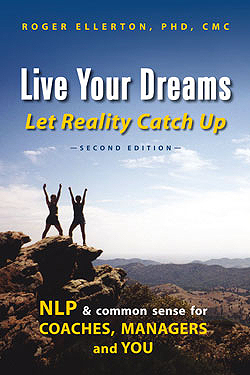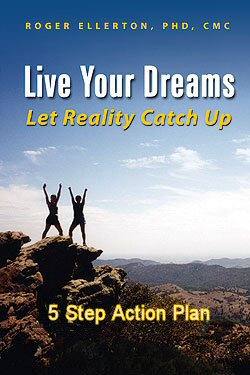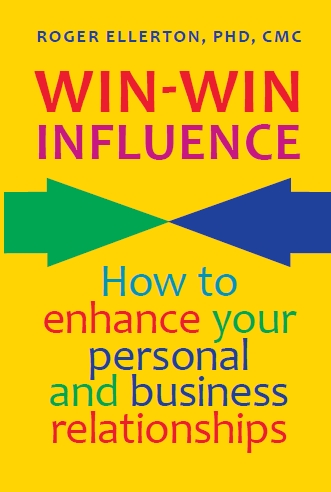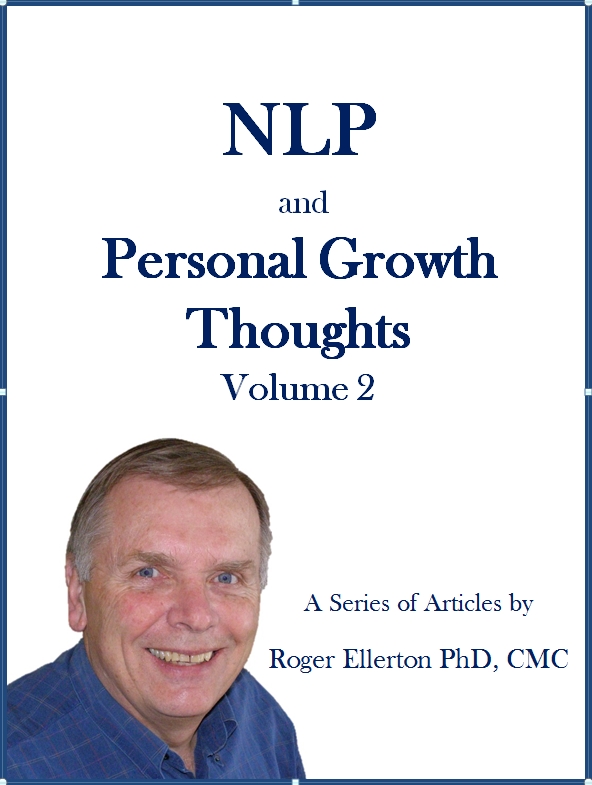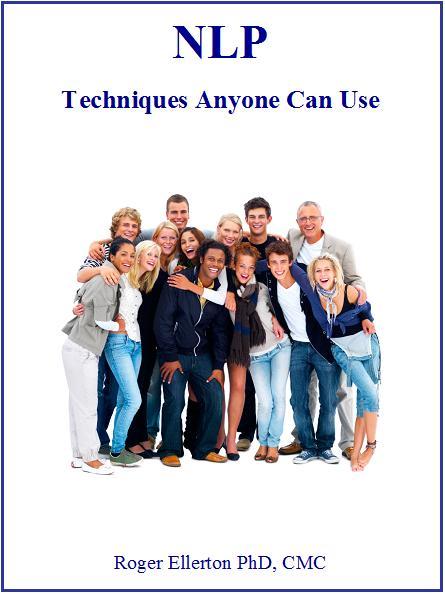Choose Your Reality and Create Your Future
By Roger Ellerton Phd, ISP, CMC, Renewal Technologies Inc.
This article may not be republished without written permission from Roger Ellerton/Renewal Technologies Inc. If you republish this article without permission, you will be in violation of copyright law and sent an invoice. You may share this and other pages with your friends by linking directly to this page from your website or blog.
Each and every one of us forms mental models as to what we believe is real and what is not. These models establish how things should or shouldn't be done and what is possible or not possible for us. For some of us, these mental models severely restrict our potential, our enjoyment of life and our ability to connect with others. Yet, others have mental models that provide all sorts of positive opportunities. We call these mental models reality and often steadfastly hold on to them even when there is significant evidence to the contrary.
How did these models come to be? As we grow up, we attempt to make sense of the world based on: our interpretation of our experiences, what we are told by others - particularly those in authority or those we respect (parents, teachers, religious leaders, ...) - and what we tell ourselves.
Interpretation of Our Experiences. As children, we make decisions that will in some way keep us safe - avoid or minimize being abused (physically or verbally) or being abandoned. And often we assume we are the cause of whatever happened - e.g. the untimely death of our parents - and in so doing, vow at an unconscious level to never do that again. We establish mental models of the world that are intended to protect us from causing such upset in the future. As a result, we put ourselves at the effect of whatever happens and on the path of being a victim. As children, these mental models may serve us well. Yet, some of us carry these models, which operate at an unconscious level, into adulthood and wonder why we get the results we do and are not living the life we desire.
What We are Told by Others. Generally, parents or other adults are well-meaning in their disciplining or teaching of children. However the behaviors they select and words they use are often inappropriate and when interpreted through the eyes and ears of a young child take on a different meaning. Consider the parent who desperately wants to see their child succeed and says to their child, for example "If you keep acting this way, you will grow up to be no good." This type of motivation may satisfy the parent's need; however the child may hear and begin to develop a mental model of 'I am no good.' A recent study by researchers at Iowa State University found in a typical family with children aged two to eight that the ratio of negative to positive comments said by parents to their children was 13:1. That is for every positive comment, children heard thirteen negative comments. If as a child, you lived in this type of environment, what mental model did you form about yourself, others and the world around you?
What We Tell Ourselves. We are talking to ourselves all of the time - often at an unconscious level. We tell ourselves how wonderful we are or how badly we messed up. For many of us, negative thoughts are far, far more frequent than positive thoughts. Although each thought by itself is insignificant, these thoughts can build up over time - just like the insignificant tiny coral polyps that come together to form massive coral reefs - thus forming barriers to what we truly want and desire in life.
To overcome this conditioning, we need to become consciously aware of our mental models and explore the origins of our thoughts and the beliefs and values (which are often not ours but someone else's) that we assumed during our childhood. Begin by paying attention to your daily thoughts and judgments about yourself and about others. As you do, get curious about the underlying beliefs and values that you are operating from, especially their origin and explore the possibility that these thoughts, judgments, beliefs and values may be incorrect. You can also explore the positive intention behind these beliefs and values (e.g. safety) and consider if the way you are attempting to achieve it is still valid (e.g. worked for you as a child but not as an adult) or if it can be obtained in a different manner - a manner that delivers fewer negative side-effects and more positive benefits. On a daily basis, you may wish to experiment with new behaviors - not dictated by your old thoughts - and notice the changes you can make in your interpretation of what is and isn't possible for you. As you implement new behaviors, you may not always be successful. At these times, remember the words of Thomas Alva Edison "I have not failed. I have just found 10,000 ways that won't work."
Author: Roger Ellerton is a certified NLP trainer, certified management consultant and the founder and managing partner of Renewal Technologies. The above article is based on his book Live Your Dreams Let Reality Catch Up: NLP and Common Sense for Coaches, Managers and You.
Copyright © 2006 Renewal Technologies Inc. All rights reserved.


